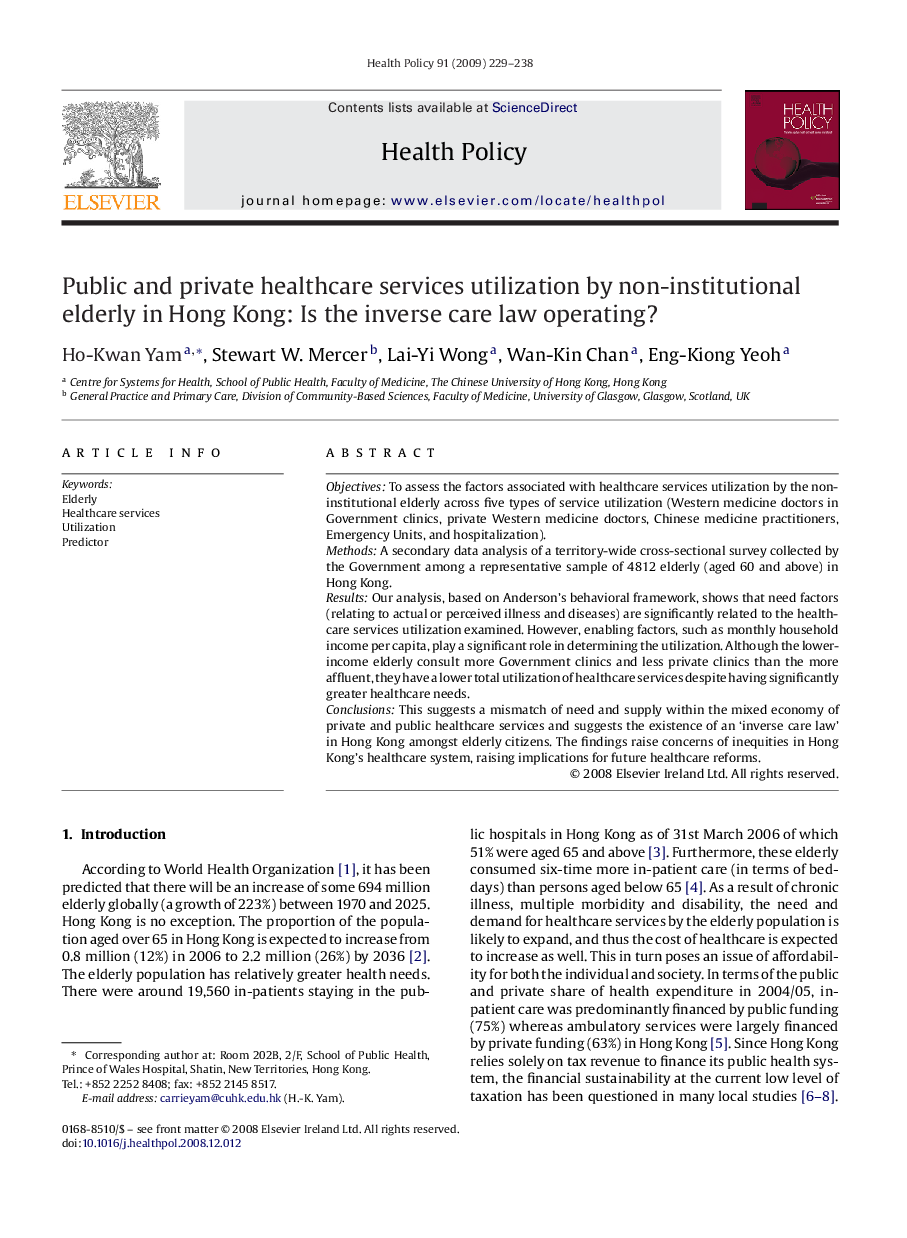| Article ID | Journal | Published Year | Pages | File Type |
|---|---|---|---|---|
| 4198434 | Health Policy | 2009 | 10 Pages |
ObjectivesTo assess the factors associated with healthcare services utilization by the non-institutional elderly across five types of service utilization (Western medicine doctors in Government clinics, private Western medicine doctors, Chinese medicine practitioners, Emergency Units, and hospitalization).MethodsA secondary data analysis of a territory-wide cross-sectional survey collected by the Government among a representative sample of 4812 elderly (aged 60 and above) in Hong Kong.ResultsOur analysis, based on Anderson's behavioral framework, shows that need factors (relating to actual or perceived illness and diseases) are significantly related to the healthcare services utilization examined. However, enabling factors, such as monthly household income per capita, play a significant role in determining the utilization. Although the lower-income elderly consult more Government clinics and less private clinics than the more affluent, they have a lower total utilization of healthcare services despite having significantly greater healthcare needs.ConclusionsThis suggests a mismatch of need and supply within the mixed economy of private and public healthcare services and suggests the existence of an ‘inverse care law’ in Hong Kong amongst elderly citizens. The findings raise concerns of inequities in Hong Kong's healthcare system, raising implications for future healthcare reforms.
